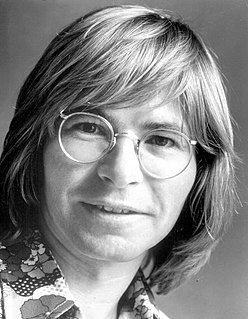A Quote by Julie Salamon
I'm also fascinated by the interplay between personal history and the larger forces that form the context for our lives.
Related Quotes
The progress of science has always been the result of a close interplay between our concepts of the universe and our observations on nature. The former can only evolve out of the latter and yet the latter is also conditioned greatly by the former. Thus in our exploration of nature, the interplay between our concepts and our observations may sometimes lead to totally unexpected aspects among already familiar phenomena.
I think the Bhagavad Gita is about both the forces of light and the forces of darkness that exist within our own self, within our own soul; that our deepest nature is one of ambiguity. We have evolutionary forces there - forces of creativity, and love, and compassion, and understanding. But we also have darkness inside us - the diabolical forces of separation, fear and delusion. And in most of our lives, there is a battle going on within ourselves.
Science and Technology revolutionize our lives, but memory, tradition and myth frame our response. Expelled from individual consciousness by the rush of change, history finds its revenge by stamping the collective unconscious with habits, values, expectations, dreams. The dialectic between past and future will continue to form our lives.
Argumentation is a human enterprise that is embedded in a larger social and psychological context. This context includes (1) the total psyches of the two persons engaged in dialogue, (2) the relationship between the two persons, (3) the immediate situation in which they find themselves and (4) the larger social, cultural and historical situation surrounding them.
We are fascinated by the club and the dancefloor; we are also fascinated by very nuanced sonic experiences, and somehow we are convinced that we can bring together these two contradictory forces and create some kind of sonic supernova. This would be the candle that has always been at the center of our project.
History produces not only the forces of domination but also the forces of resistance that press up against and are often the objects of such domination. Which is another way of saying that history, the past, is larger than the present, and is the ever-growing and ongoing possibility of resistance to the present’s imposed values, the possibility of futures not unlike the present, futures that resist and transform what dominates the present.
Community, then, is an indispensable term in any discussion of the connection between people and land. A healthy community is a form that includes all the local things that are connected by the larger, ultimately mysterious form of the Creation. In speaking of community, then, we are speaking of a complex connection not only among human beings or between humans and their homeland but also between human economy and nature, between forest or prairie and field or orchard, and between troublesome creatures and pleasant ones. All neighbors are included.
Architects and urbanists are fascinated with cities that are shrinking, like the Rust Belt cities. Or, alternatively, we are fascinated with the growth of favelas and informal settlements. The 2008 financial crisis made these changes more extreme. The subtraction protocols rehearse a way of thinking about multiple properties in counterbalancing interdependence - not just the shaping of one property but the ratcheting interplay between properties.
We explore within postures everything we deal with in life: the interplay between resistance and surrender; establishing stability and maintaining flexibility; learning to receive and release; being present to all the complexities of our lives, and returning to the fundamentals of our "beginner's mind" again and again.

































